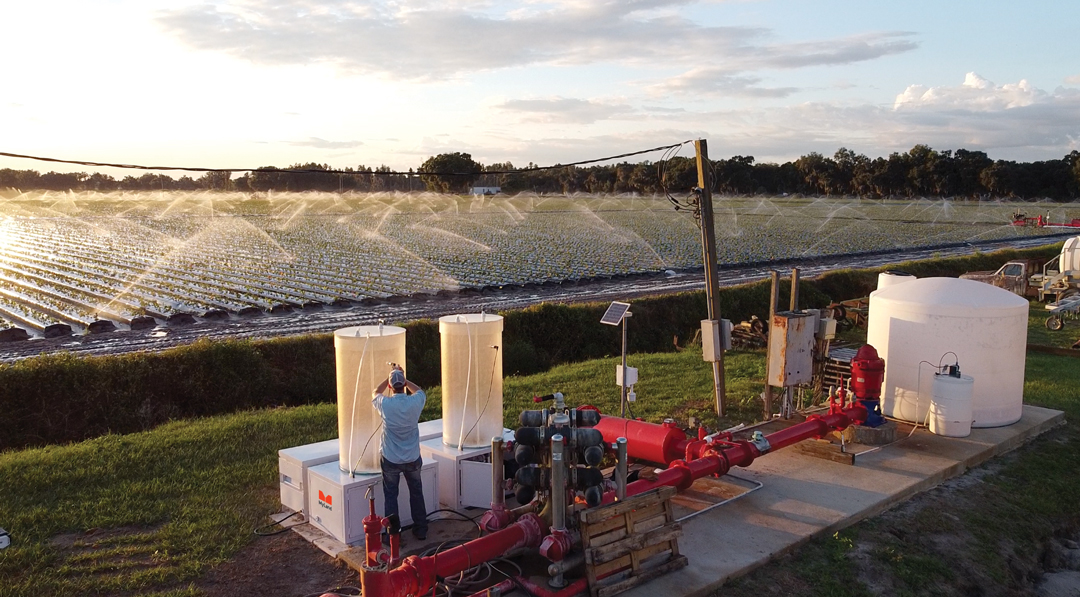A SMOOTHIE FOR THE SOIL
BY ELLEN COTTEE • PHOTO COURTESY OF MYLAND
Kris Nichols, principal scientist and research director of MyLand, calls microalgae “eco-engineers” that improve soil health and benefit crops. “Our perspective on algae, oftentimes, is that they’re aquatic organisms and they’re going to be where you have a lot of water,” said Nichols. “But they are very key in very dry systems to help manage water and nutrient relationships.”
The Phoenix, Ariz, company has developed a process that multiplies a farm’s own existing beneficial microalgae and reapplies it at a high concentration to the land via irrigation. Doing so, it claims the algae can improve soil health, increase yield and decrease reliance on inputs. All these ends are in line with regenerative agricultural practices intended to produce positive environmental impacts.
The beneficial aspects of microalgae are not new to science, but they are central to MyLand’s approach. That is, better soil improves the farm bottom line. “Everything we do relates to live, native microalgae,” said CEO Peter Williams. “Everything is taken from the specific farm’s soil itself.”
In the lab, MyLand analyzes soil samples to identify and extract strains of native microalgae that are most beneficial to the soil. The microalgae are then cultured in a 75-day process. The resulting concentrated mixture is used to feed the company’s on-farm production system. This equipment pod looks like a shipping container. Connected to the farm’s power supply, its inner workings continuously multiply the microalgae in sterilized water under LED lights. It is then injected into the irrigation system and applied to the land.
Among the positive effects of live microalgae touted by MyLand are its ability to increase porousness, which increases the soil’s water and nutrient storage capacity and promotes root growth. While it increases the organic carbon content, it decreases the need for synthetic fertilizer, nourishes soil microbes and reduces erosion by binding soil particles.
The system is operated, maintained and monitored remotely by MyLand. Its regional teams provide customer support and physical maintenance as needed. “The model is really designed to make adaptation of our service and technology easy,” said Williams.
MyLand customers are offered ongoing soil health review agronomy services. These include quarterly sampling in the first year and, later, annual sampling. Williams claimed clients have seen a 20 to 30 per cent decrease in the need for chemical fertilizer, while some have even eliminated chemical fertilizer and soil amendment use. Improved crop resilience has additionally increased yields, he said.
The MyLand system is now in use on more than a million acres of farmland. Much of this land produces various crops for major corporations such as Costco and General Mills. Now focused on farm operations in Arizona, California and Florida, MyLand intends to expand to the Pacific Northwest and additional areas of North America in the coming years, said Williams.
“The goal was always to make it as easy as possible for the grower to implement regenerative agriculture practices in a scalable way,” said Williams. “That has recently become a driver for the adoption of our service.”







Comments